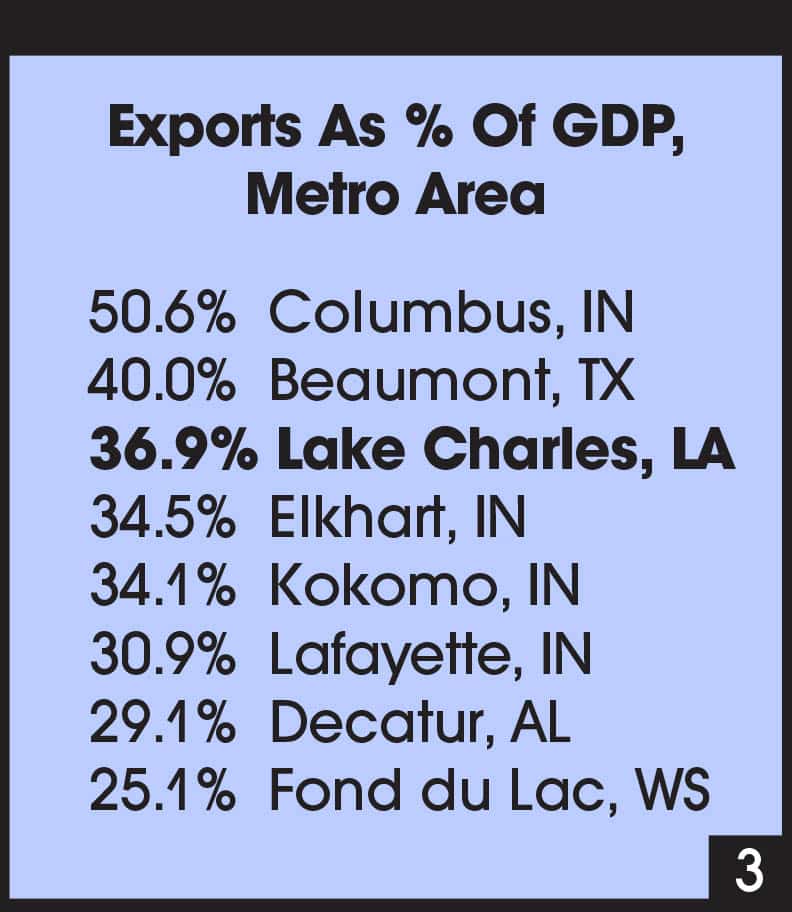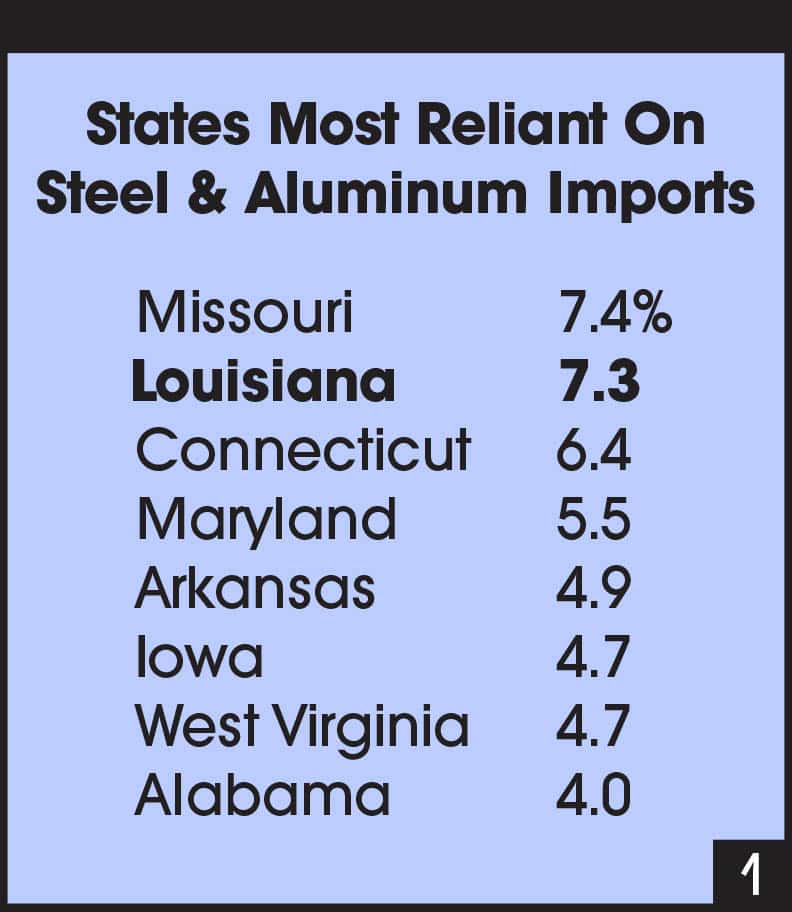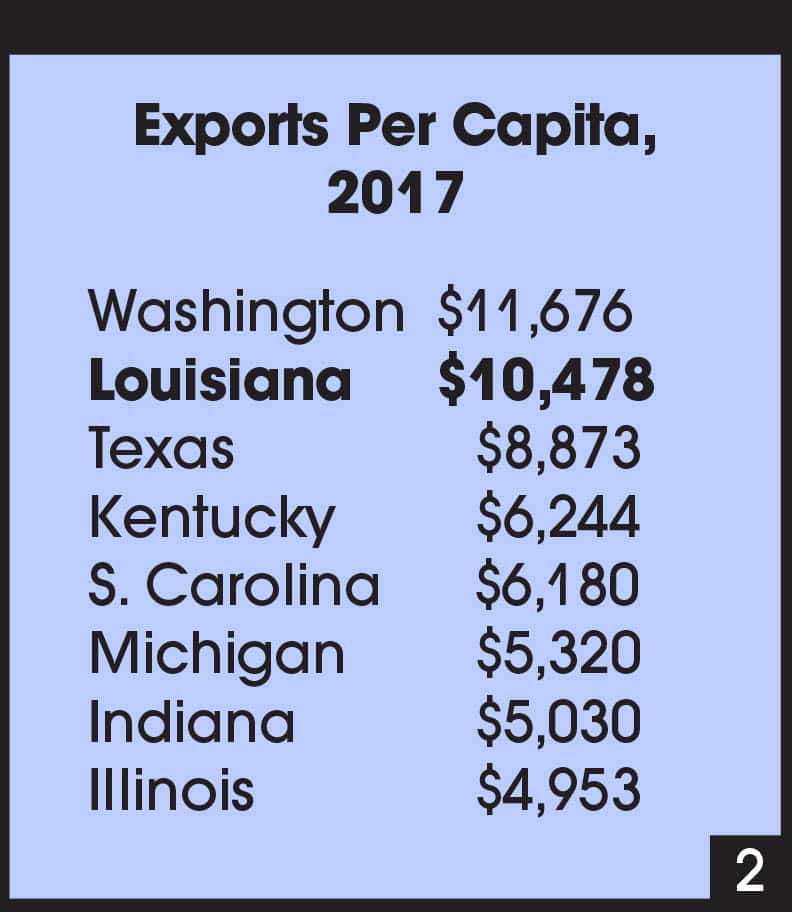The Cost of Saving Jobs
President Trump recently signed a proclamation imposing tariffs on imported steel and aluminum. He was able to bypass Congress by claiming his action was for national security. But it was clear to everyone at the ceremony his real motive was to curry favor with steelworkers ahead of a congressional election in Pennsylvania that is widely seen as a test of Trump’s ability to motivate his base to go to the polls when his name is not on the ballot.
There is nothing new about using tariffs for political gain. George W. Bush did the same thing in 2002 when he imposed tariffs on steel and aluminum imports ahead of the midterm elections that year.
The reason saving jobs in the steel industry is so important to presidents, even Republicans whose party is adamantly opposed to such protectionist measures, is that the steel industry is concentrated in three politically important swing states: Pennsylvania, West Virginia and Ohio. Economists will tell you the cost of protectionist policies outweigh the benefits — but they are calculating dollars, not votes.
In the case of steel, the benefits are concentrated on a group of crucial voters. The benefits are immediate and highly visible, while the costs are spread across the entire nation, and their full impact not felt until after the election.
That’s what President Bush was counting on in 2002, and it worked for him politically. But it didn’t work out so well for the nation. The countries we imported steel from immediately filed a complaint against the United States with the World Trade Organization (WTO). A hearing was held, and the WTO ruled that Bush’s tariffs were politically motivated. It imposed $2 billion in sanctions against the U.S for violating their trade commitments.
Bush scoffed at the WTO ruling and refused to remove the tariffs, so the European Union countered with tariffs of its own on products they imported from key swing states, such as oranges from Florida and cars from Michigan.
The Republicans got the message, and Bush withdrew his tariffs in December, 2003. But in the meantime, the rest of the country had paid a significant cost for those few votes in Pennsylvania. According to a study by the Consuming Industries Trade Action Coalition (CITAC), 200,000 Americans lost their jobs to higher steel prices during 2002, including an estimated 3,653 jobs lost in Louisiana.
There is little reason to be believe things will work out differently for President Trump. If the WTO and our trading partners retaliate in the same manner they did in 2002, Louisiana and Texas could find themselves on the frontlines of a trade war.
Here are some facts about Southwest Louisiana and international trade that many local residents may not know. According to a recent study by the Brookings Institution, Louisiana is the second most reliant state on imported steel and aluminum. That means we are likely to feel the cost of high prices for steel and aluminum more than most states (see Table 1).

Why do we rank so high? Because we are leaders in two of the largest exports from the United States: petrochemicals and fuels, and agricultural products such as soy beans, corn, and rice.
In another Brookings study looking at the communities in the United States that are most vulnerable to sanctions imposed in a trade war, Columbus, Ind., was at the top of the list. It’s home of engine-maker Cummins and other automotive manufacturers. But No. 2 was Beaumont, Texas. And right behind Beaumont in third place was Lake Charles. The study estimated that 36.9 percent of our GDP was derived from exports; this is consistent with my own calculations (Table 3).
Trump’s economic advisors tried to dissuade him from imposing tariffs on steel and aluminum, explaining it had been tried before and didn’t work. His chairman of the National Economic Council, Gary Cohn, resigned in protest.
But Trump, who is not known for listening to his advisors, was determined to fulfill a promise he made on the campaign trail … or maybe he was counting votes instead of dollars. One can only hope that another of President Trump’s traits — the ability to change his mind and modify his position —may yet kick in.
















Comments are closed.